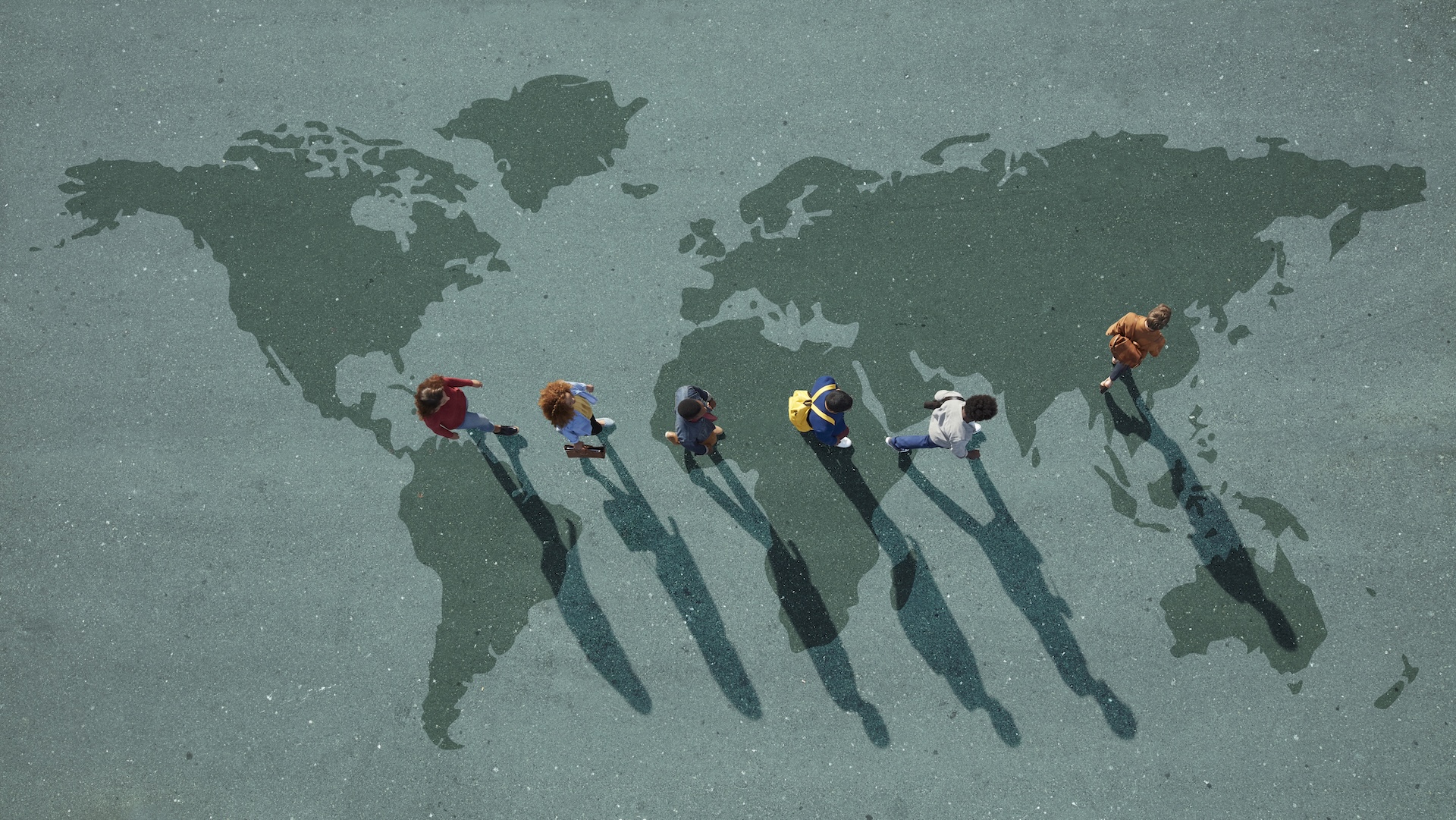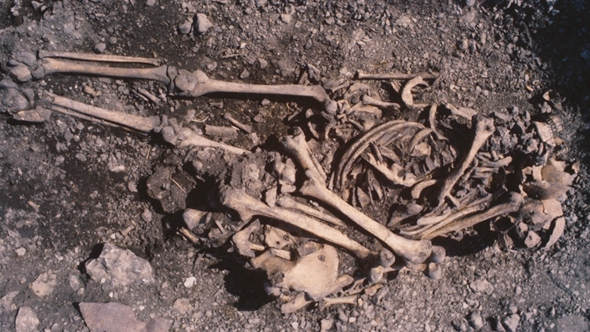Why did Homo sapiens emerge in Africa?
Our human ancestors arose in Africa due to many factors, including climate.

Get the world’s most fascinating discoveries delivered straight to your inbox.
You are now subscribed
Your newsletter sign-up was successful
Want to add more newsletters?

Delivered Daily
Daily Newsletter
Sign up for the latest discoveries, groundbreaking research and fascinating breakthroughs that impact you and the wider world direct to your inbox.

Once a week
Life's Little Mysteries
Feed your curiosity with an exclusive mystery every week, solved with science and delivered direct to your inbox before it's seen anywhere else.

Once a week
How It Works
Sign up to our free science & technology newsletter for your weekly fix of fascinating articles, quick quizzes, amazing images, and more

Delivered daily
Space.com Newsletter
Breaking space news, the latest updates on rocket launches, skywatching events and more!

Once a month
Watch This Space
Sign up to our monthly entertainment newsletter to keep up with all our coverage of the latest sci-fi and space movies, tv shows, games and books.

Once a week
Night Sky This Week
Discover this week's must-see night sky events, moon phases, and stunning astrophotos. Sign up for our skywatching newsletter and explore the universe with us!
Join the club
Get full access to premium articles, exclusive features and a growing list of member rewards.
Every person on Earth today can trace their ancestry to Africa, where modern humans (Homo sapiens) emerged at least 300,000 years ago. But our ancestor Homo erectus lived in Africa, Europe and Asia, and so did its likely descendant Homo heidelbergensis. H. heidelbergensis gave rise to at least three hominins in different places: Neanderthals (in Eurasia), Denisovans (in Asia) and modern humans (in Africa).
So why did H. heidelbergensis give rise to H. sapiens in Africa?
"That's the thousand dollar question," Brenna Henn, a population geneticist at the University of California, Davis, told Live Science. To try to answer it, she said, we must first examine the process through which H. sapiens first evolved. A 1987 paper published in the journal Nature traced all modern human mitochondrial DNA back to one population in Africa which lived between 200,000 and 150,000 years ago.
Related: When did Homo sapiens first appear?
However, Henn and other scientists challenge the idea that only one population gave rise to modern humans. When modern humans began to emerge, our Homo sapiens ancestors were spread out in dozens of specialized populations across Africa. Africa is a massive continent with a highly diverse set of ecosystems, so these populations had to adapt to suit their specific areas.
In a 2023 study published in the journal Nature, Henn and her colleagues found that it was likely that at least two of these stem populations were the originators of H. sapiens. They proposed that, despite living separately for thousands of years, individuals from these populations still mingled at some point, creating a loose stem population that eventually became our species.
Henn speculated that the ecological diversity of the African continent and the subsequent intermingling of multiple populations may be what allowed modern humans to evolve. "Because you had all of that either genetic or behavioral diversity, that's really what facilitated a complex package that allowed Homo sapiens to be what they are," she told Live Science.
Get the world’s most fascinating discoveries delivered straight to your inbox.
Curtis Marean, a professor of paleoanthropology and associate director at the Institute of Human Origins at Arizona State University, said that scientists still disagree about whether one population, or Henn's theory of a small few populations, gave rise to modern humans. However, he said these two similar theories are more accepted than the newer pan-African hypothesis, which argues that humans evolved at the same time all over the African continent.
"It doesn't really fit with any theory that we have about how evolution happens," he said. He agrees with Henn that Africa's immense size likely created the genetic diversity that allowed for the advanced cognition and social cooperation of modern humans to evolve.
"The more genetic variation you have, the higher probability you have of something interesting evolving," he told Live Science. Although Europe and Asia combined are also enormous, he said Africa's warmer climate could have given H. sapiens the advantage. The glacial periods that happen every 100,000 years would have walled the Eurasian hominids in with ice, Marean said, whereas the African H. sapiens would have lost little of their range during those periods. With a more connected range, H. sapiens had more room to diversify and more access to each other, allowing for more gene flow.
Marean emphasized that all of this is very theoretical and there is still a lot to discover, such as which population(s) developed into modern humans and whether language played a role in modern humans' cognitive development. Marean hopes future research will explore these questions.
"The study of human evolution is about how we came to be," he said. "It's hard to imagine anything that's more important than that."
Katherine Irving is a freelance science journalist specializing in wildlife and the geosciences. After graduating from Macalester College, where she wrote screenplays, excavated dinosaur bones and vaccinated wolves, Katherine dove straight into internships with Science Magazine and The Scientist. She now contributes to the Science Magazine podcast and loves reporting about the beautiful intricacies of our planet.
 Live Science Plus
Live Science Plus











